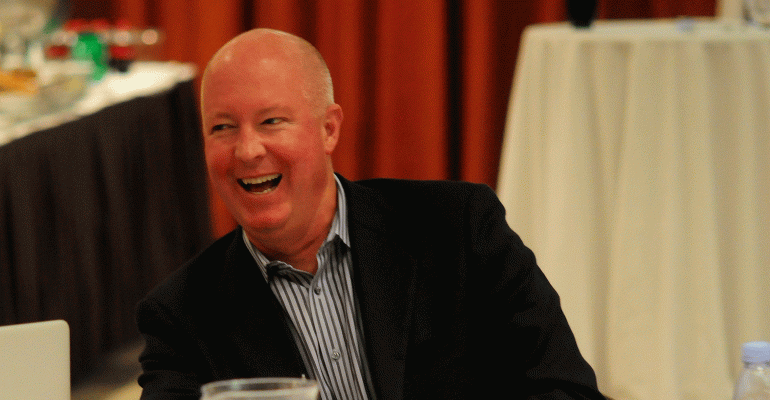If you regularly read wealth management media, you’ve likely seen the name Tim Welsh. Welsh is a frequent speaker at events and a consultant to firms looking to navigate the investment advisory industry. He also authors industry white papers and contributes columns to a number of publications, including WealthManagement.com.
Since leaving Charles Schwab, Welsh founded Nexus Strategy, a consulting firm for both financial advisors and wealth management technology firms looking to expand their reach. Welsh will host a discussion on wealthtech at the 2017 Executive Forum. We talked to him about what trends he expects to be top of mind for the CEOs looking to disrupt the industry.
WealthManagement.com: So what is Nexus Strategy and why did you found it?
Tim Welsh: Previously, I was at Schwab in the advisor business with a focus on marketing and strategy for the RIA custody platform. Before that, I was at Merrill Lynch in the financial planning group. So I have experience in both sides of Wall Street—the wirehouse side and the independent side.
I brought that experience to consulting. At Nexus Strategy, I help technology companies with positioning themselves in the industry and distributing their products and platforms through the advisor channel. We work with every type of financial advisor system, from CRM all the way up to robo advisors.
WM: Can you share any success stories?
TW: One of the first ones was Black Diamond. We built their presence up to the point where it was becoming such a disruptor that the incumbents like Advent realized the power of cloud-based platforms and ended up acquiring Black Diamond for $72 million.
Another example was Finance Logix. I worked with founder Oleg Tishkevich, who had a very fragmented approach to the market, to develop a strategy and approach to get his client-experience technology built up so that another incumbent, Envestnet, bought it for $32 million.
WM: What do you think is the biggest story in wealthtech today?
TW: Without a doubt, I think it’s the emerging client-experience technology. It’s a broad category for a number of different services—from account aggregation to automated advice platforms. I don’t think the robos are the story anymore; it’s the ability of advisors to automate a lot of the back-office processes through this technology.
WM: What are you looking forward to at the Executive Forum?
TW: It’s an unprecedented gathering of roughly 30 CEOs and COOs from tech companies, as well as broker/dealers and custodians who are building these advisor tools. The wisdom, the knowledge, and the shared experience will be fascinating. It’s like a think tank for the future of advisor technology.
WM: What are you hoping to take away?
TW: I really want to see how people are taking this AI, this big data, this new client-experience technology and they’re going to embed it into all aspects of advisor tech. The firms here on the cutting edge of where this technology is going. The independent space is so open-architecture, as opposed to a big banking institution where it’s hard to innovate anything. I’m excited to see where these execs are taking their various products and platforms in the next five to 10 years.
WM: What other topics are you looking to cover?
TW: Of course, cybersecurity will be on the list. As will integration, and whether we will ever come to a data standard as an industry. And even forward-looking topics such as the Internet of things, wearables, and if we can look at our watches or virtual-reality glasses to see our portfolios.
The DOL story has been beaten to death, but I think the fiduciary movement is definitely something we’ll talk about—how advisors will deliver advice in a post-fiduciary world.
Tim Welsh will host a roundtable discussion on this topic at the WealthManagement.com Executive Forum on October 11 at the Plaza Hotel in New York City.





